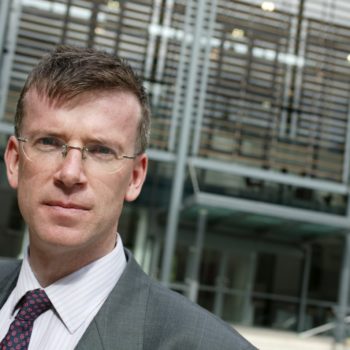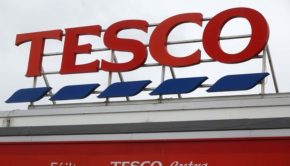Government economics advisor predicts green recovery post Covid-19

NUIG’s professor Alan Ahearne says opportunities exist for businesses to tap into consumer Covid savings
8 September 2020
The Taoiseach’s special economics adviser, professor Alan Ahearne, of NUI Galway, has said he remains “cautiously optimistic” about a rapid economic recovery occurring post pandemic. He added that climate change is going to have an “even bigger” impact on global economies than Covid-19 and that government policy is likely to focus on a “green recovery”.
The economics expert made his comments in an online presentation broadcast by the Whitaker Institute for Innovation and Societal Change at NUIG last week as part of an InterTrade Ireland All Island Innovation Programme online events series for SMEs.
The presentation was recorded prior to Prof Ahearne’s appointment as economics adviser in the Department of An Taoiseach. However, the economist, who is chair of the Central Bank of Ireland’s Risk Committee and served as special adviser to the former Minister for Finance, Brian Lenihan, following the financial crash in 2008, confirmed that his comments remain relevant.
He said he believes the current economic recession “will be temporary” but admits there will be some permanent “scarring effects” from the downturn in terms of changes to consumer and household behaviour.
He went on to compare the current recession with the financial crisis of 2008, highlighting differences in how the Irish government and governments worldwide responded to the two events, while outlining areas of opportunity for businesses both during and after the pandemic.
“This is a very difficult and challenging time for a lot of small and medium sized enterprises across the island of Ireland which are being hit for the second time in a decade by an extraordinary, deep recession, particularly within the hospitality sector, leisure and personal services and retail,” Prof Ahearne said.
“Assuming that containment measures continue to be lifted,” he added, “I think one can be cautiously optimistic, conditional on the path of the virus and public health crisis, that we can see a much more rapid rebound in the global economy and therefore also in the Republic and in Northern Ireland than was the case ten years ago.”
Prof Ahearne said that for SMEs, which essentially drive the economy, a “key ingredient for surviving the downturn and then prospering in the recovery is agility and adaptability”.
He said economists have forecast that for the Republic of Ireland alone, there will be an extra €10bn of household savings banked by next year and that businesses should look for ways to tap into consumers’ savings “accrued during the lockdown period when it was difficult to spend money” and think about “how to get households to loosen their purse strings”.
The economist identified areas of opportunity for businesses in tourism, the green economy, health and wellbeing and localisation of supply chains.
He stressed however that governments, businesses and the public need to think about climate change, saying we will be faced with “a much bigger crisis if we don’t do something to transition to a lower-carbon economy.”
“I think that’s the direction of travel for policy about this recovery and there are opportunities there for businesses to adapt now to become more climate friendly and ride the tailcoats of the green recovery,” Prof Ahearne said.



 Print
Print




Fans 0
Followers